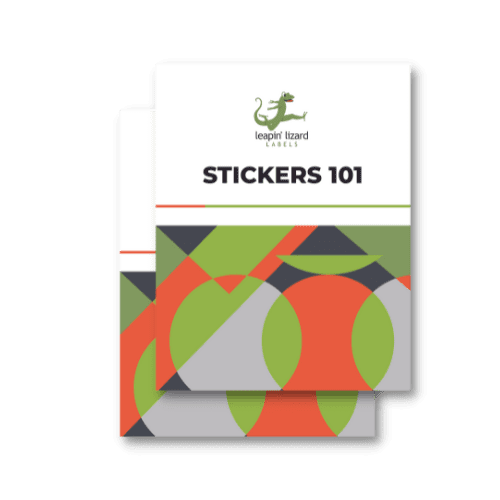Signage
Signage is a key component of any successful trade show booth. It helps to draw in visitors, create a professional look, and provide important information about your company or products. When selecting signage for your trade show booth, there are several factors to consider, such as size, material, design, and visibility.
Size - The size of your signage will depend on the size of your booth. You want to ensure that it's large enough to be easily seen from a distance but not so large that it overwhelms the space.
Material - Aluminum is a popular choice for stand signs as it is lightweight and durable and can be used indoors or outdoors. You can also get custom-made signs made of wood, plastic, or vinyl.
Design - Your signage should be eye-catching and include your company logo or message. Ensure it contains all the necessary information, such as contact details, website address, and product descriptions.
Visibility - Overhead hanging signs are a great way to ensure that your booth stands out in busy trade shows held in large spaces. Banners are also an effective way to draw attention to your booth from far away.
Printed Marketing
Printed marketing is one of the most important elements of a successful trade show booth. It’s important to ensure you have enough printed materials to stock your booth and draw attention to your brand.
Before you begin, you must know what printed materials you need. This could include flyers, brochures, postcards, business cards, banners, and more. Consider the size and quantity of each item. For example, you can order smaller quantities of promotional items like pens or stress balls. On the other hand, you can invest in a larger quantity of printed materials such as business cards or flyers.
Once you’ve decided on the items you need, it’s time to decide what type of paper stock and finish you want for each item. There are a variety of paper stocks available, from glossy to recycled. For extra durability, you may also consider adding features like UV coating or spot varnish.
When designing your printed materials, make sure they are eye-catching and easy to read. Consider using bright colors and bold fonts to draw attention. You should also include your contact information and any important details about your product or service.
Finally, ensure you have enough printed materials for your trade show booth. It’s always better to be over-prepared than under-prepared when stocking up on promotional items and printed materials for your next trade show.
Design Considerations
Designing a trade show booth can be daunting, but following a few key principles can create an eye-catching display that stands out from the competition. Before you start planning, it’s important to consider the size of the booth and how much space is available. If you’re in a smaller space, it’s important to make the most of your space. Use vertical space to create multiple display levels and add interactive elements to engage with customers. Add floor decals to take advantage of the space in front of your booth, too!
Maximize Your Visibility
Getting the most out of your trade show booth means maximizing visibility. Here are a few tips to make sure that your booth stands out from the crowd and gets noticed:
1. Use bright and eye-catching colors in your booth design. Colors that stand out from the competition can draw attention from across the room.
2. Position your booth in a high-traffic area of the show floor. This will ensure that you get the most foot traffic and potential customers.
3. Take advantage of lighting to draw attention to your booth. Spotlights or LED strips can highlight certain aspects of your booth and make it stand out from the rest.
4. Use visuals, such as images, videos, or graphics, to capture the attention of passersby.
5. Have staff members wear branded shirts or hats, so they can easily be spotted in the crowd and direct potential customers to your booth.
Following these tips ensures that your booth is noticed and stands out from the competition at your next trade show.
Choose the Right Booth Size
Most trade show experts recommend providing approximately 40 square feet of space for each team member you plan to have in your booth during the event. As a general rule of thumb, most exhibit booths are offered in sizes 10' x 10', 10' x 20', and 20' x 20'. An island booth is at least a 20' x 20' or larger exhibit exposed to the aisles on all four sides. The typical booth size in the US is 10 ft x 10 ft, and these booth areas will fill the aisles of trade show exhibits. If an exhibitor wants a larger display, they should consider upgrading to a larger size, such as 10' x 20' or 20' x 20'. Ten-foot booths can make a huge difference and give you that extra space needed to make the most of your trade show experience.
Include Interactive Elements
Gamification incorporates game-like elements into your booth design and activities, such as puzzles, scavenger hunts, and trivia.
Here are some tips for incorporating gamification into your trade show booth:
1. Create engaging activities. Games should be fun and engaging. Consider creating a scavenger hunt or trivia game that encourages customers to explore your booth and learn more about your company.
2. Offer prizes or rewards. Offering prizes or rewards for participating in the game is a great way to incentivize customers and ensure they stay engaged with your booth. Consider offering branded swag or discounts on products or services.
3. Make the game easy to understand. Keep the game's rules simple and clear so customers can easily understand how to play.
4. Utilize technology. Technology can be used to make games more engaging and interactive, such as using tablets or computers to quickly capture customer data or creating interactive displays for customers to interact with.
Some of the most unique trade show games include:
Are You Smarter Than A Robot? This game pits you against a robotic opponent in a battle of wits. Players must answer a series of questions correctly to win the challenge.
Have a Photo Booth. Invite customers to take fun photos with props representing your brand or product. Not only will they have a fun souvenir of their experience, but you can also use these photos to promote your product on social media.
iPad Jeopardy Wall. This interactive game involves customers answering questions on an iPad wall. Players must answer questions correctly within the allotted time to move on to the next level.
VR Race Car. This virtual reality experience puts customers in the driver’s seat of a race car and lets them take it for a spin around the track. This is an excellent way to get visitors excited about your brand or product.
Batak Pro. This interactive game uses lights and sound to challenge players to react quickly and accurately as they compete for points and prizes.
By incorporating gamification techniques into your trade show booth, you’ll be able to engage with customers entertainingly and memorably, which will leave a lasting impression.
Using tablets and computers to quickly capture customer data
Tablets and computers are increasingly becoming the go-to for companies to capture customer data at trade shows. Using these devices, you can quickly and easily scan badges, qualify leads, and capture data much faster than traditional methods. Here's how to make the most of this technology at your next trade show:
1. Invest in a quality tablet or computer: You'll want to ensure your device is reliable and up-to-date with the latest software. Also, ensure it is secure and protected with a password, so your data is safe.
2. Download an app: Use a lead-capture app specifically designed for trade shows. This will allow you to quickly capture customer data and export it to your computer program.
3. Train your staff: Make sure your staff is trained on how to use the technology before the show starts. Have them practice using the app so they are comfortable with it when the time comes.
4. Have a backup plan: In case of technical difficulties, have a backup plan. This could include having paper forms or a backup device ready to go.
In a post-COVID world, trade shows are more important than ever as people return to the human element of business development. Use these tips to ensure your trade show goes smoothly!





